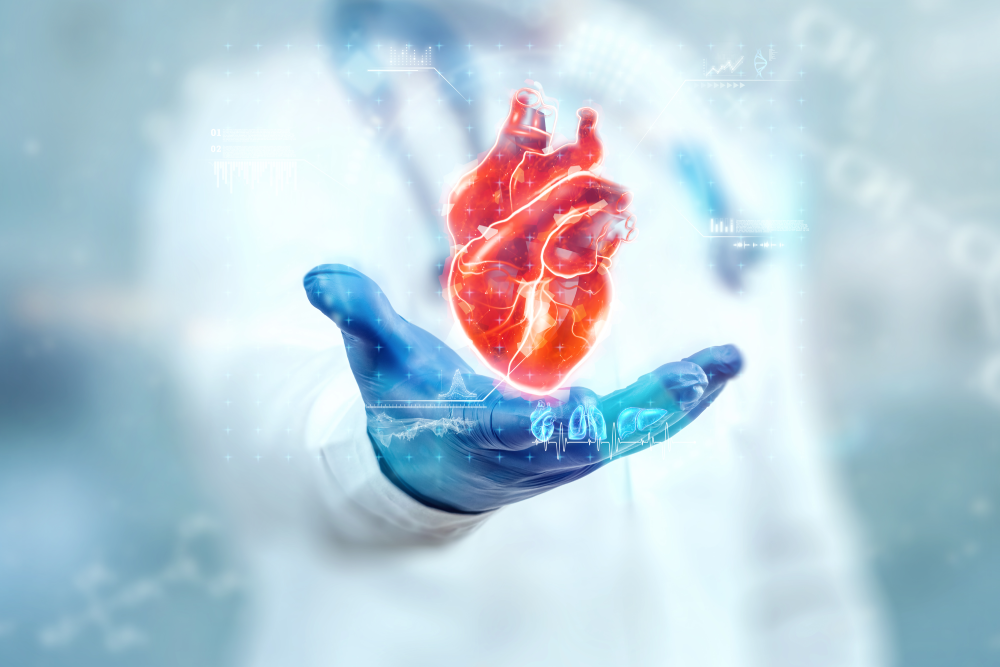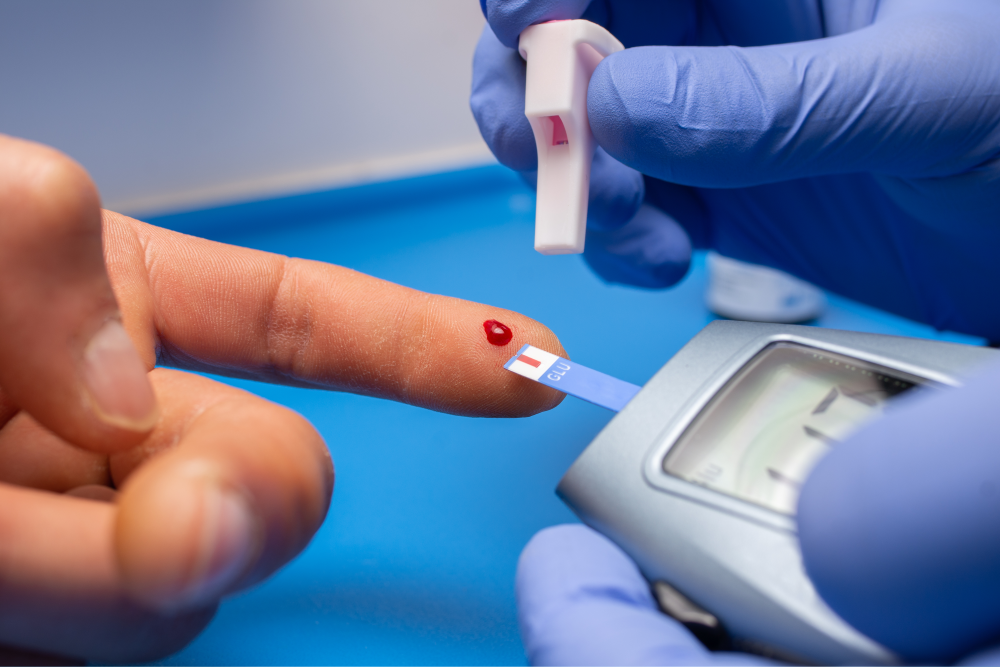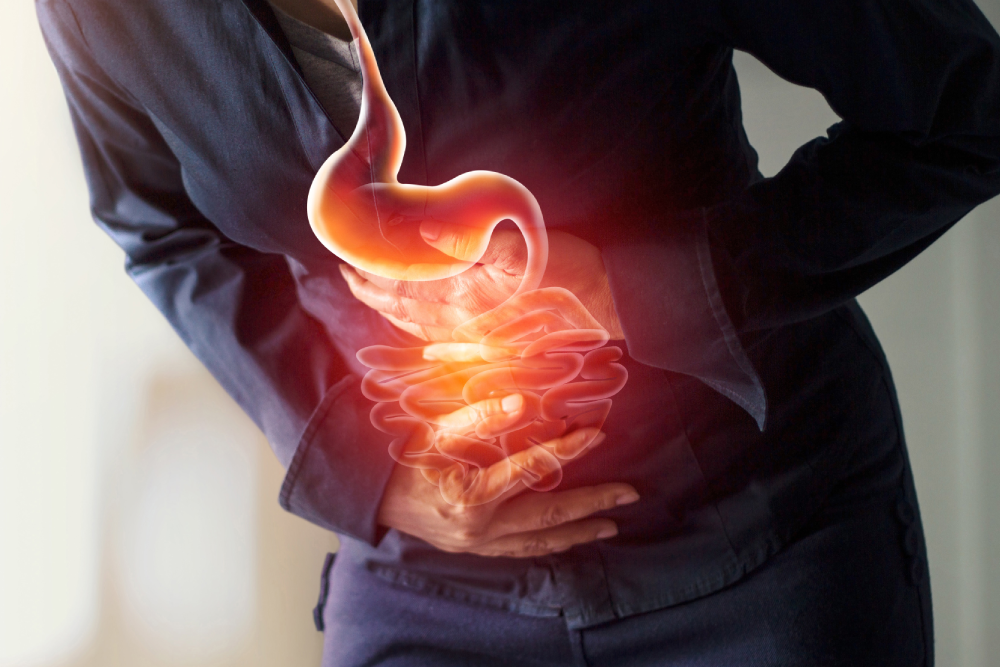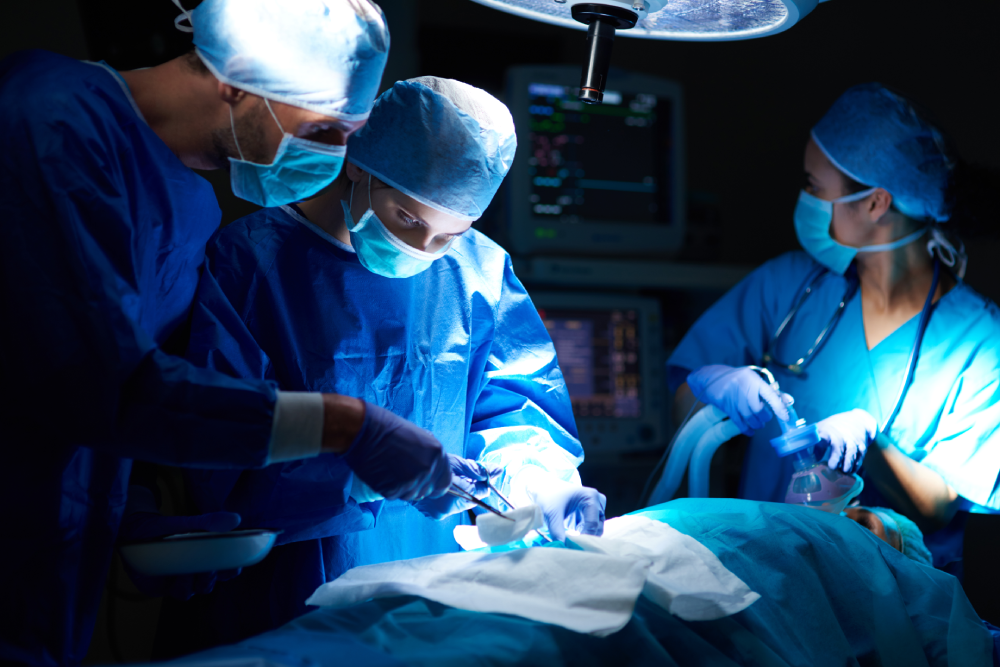Endometriosis
- Home
- Our Department
- Gynaecology
- Endometriosis

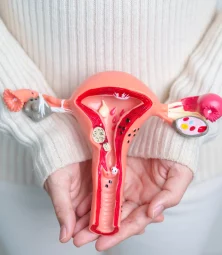

Endometriosis Treatment in Coimbatore
Endometriosis is a disorder in which tissues resembling endometrium (lining of the uterus) grow outside of your uterine cavity. These tissues grow commonly on ovaries, fallopian tubes, the bowel, and the tissues lining your pelvis. In rare cases, endometrial tissues grow beyond the pelvic area. This tissue growth is less common in the vagina, cervix, and bladder. The exact cause is not known. The endometrial tissue growing outside your uterus found in ectopic locations is termed an endometrial implant. Endometriosis has even been reported in the brain, liver, lungs, and old surgical scars.
In this disorder, the tissues similar to endometrial tissues that line the uterus, grow, thickens, and break down in every menstrual cycle. But unlike normal menstruation, these tissues have no way to exit your body since these are not located inside your uterus. These tissues become trapped and can be extremely painful. This pain gets severe during menstrual periods. Endometriosis can even lead to fertility problems.
When endometriosis occurs in the ovaries, it leads to cyst formation called endometriomas. This can irritate the surrounding tissues and can end up developing scar tissues and adhesions. Adhesions are abnormal bands of fibrous tissues that can cause the pelvic tissues and organs to stick to each other. Endometriosis is not an uncommon problem these days, affecting around 10 percent of the women population but fortunately, there are effective treatment options available.
Depending on the exact location, depth, and extent, size, and severity of the endometriosis implants, endometriosis is classified into one of the following four stages:
- I - Minimal
- II - Mild
- III - Moderate
- IV - Severe
The minimal and mild stages mean that there are mild scarring and superficial implants. Cysts and severe scarring are included in moderate and severe endometriosis. Infertility is common with stage IV endometriosis. Minimal and mild endometriosis involves shallow implants on the pelvic lining and the ovaries.
Symptoms
The primary symptom of endometriosis is pelvic pain. The menstrual cycle pain is severe than usual. The severity of symptoms does not determine the degree of the stage of your endometriosis. Moderate and mild stages can even lead to severe pain. The common signs and symptoms of endometriosis are as follows:
- Dysmenorrhea: Pelvic pain and cramping that can start before periods and continue after periods too.
- Intermenstrual bleeding: Heavy bleeding during or between periods is also a symptom of endometriosis.
- Pain following sexual intercourse: Pain during or after sex can be a symptom of endometriosis.
- Pain with bowel movements: You can be experiencing pain and discomfort during bowel movements and urination. Lower back pain during menstrual cycles is a common symptom of endometriosis.
- Other symptoms: Along with the common symptoms above, you might be experiencing diarrhea, fatigue, bloating, constipation, and nausea during periods.
Pelvic pain depends on the depth of the endometrial implants. Deeper implants or implants located in areas with high nerve density are more painful. Implants can cause scarring of the surrounding region and can release substances into your bloodstream that is painful.
Endometriosis can lead to infertility. The implants are usually found in individuals who are totally asymptomatic. The exact cause of reduced fertility in women with endometriosis is not known completely but both hormonal and anatomical factors can be the reasons behind it.
Endometriosis cysts are benign but some studies suggest that women with endometriosis have an increased risk of developing certain types of ovarian cancer.

Causes
- Retrograde menstruation: The blood with endometrial cells flows back into the pelvic cavity through the fallopian tubes rather than exiting the body. These endometrial cells stick on the pelvic walls and accumulate over time. These tissues thicken and bleed during the menstrual cycle.
- Transformation of peritoneal cells: The peritoneal cells are the cells that line the inner side of your abdomen. Hormones or immune systems can cause these peritoneal cells to transform into endometrial-like cells. This is possible because the cells in the abdomen grow from embryonic cells. These cells can change shape and act like endometrial implants.
- Surgical implantation: During hysterectomy or C-section, or such surgeries involving the endometrial region, the cells might attach to the surgical incision. After a C-section, it is possible for the menstrual blood to leak into the pelvic cavity through a surgical scar.
- Embryonic cell transformation: Hormones such as estrogen can transform the cells in the earliest stage of development into endometrial-like cell plants during puberty.
- Endometrial cell transport: The blood or tissue fluids can carry the endometrial cells to other parts of the body.
- Immune system disorder: In some cases, the immune system fails to recognize and destroy the endometrial cells growing outside the uterus.
- Mullerian theory: According to this theory, endometriosis might start in the fetal period with misplaced cell tissues. These tissues might respond to hormones produced during puberty. Some theories also suggest that endometriosis might be linked to genetics or environmental toxins.
Risk factors
Usually, endometriosis starts showing signs several years after the onset of the menstrual cycle. The symptoms improve during pregnancy and completely disappear after menopause. Endometriosis is common in the age group between 25 to 40. Knowing the risk factors can help to decide when to see a doctor and detect the problem at an early stage. Some of those risk factors are as follows:
- Short menstrual cycles, like less than 27 days.
- Family history should be taken into notice. Talk to your doctor regarding this. If one or more of your close relatives, like your mother, sister, or aunt has or had endometriosis, there are chances you might be developing it too.
- Women who never had children are at a greater risk of developing endometriosis. Pregnancy reduces the symptoms of endometriosis.
- The onset of menstrual cycles at an early age and the onset of menopause at an older age can also be related to endometriosis. Heavy and longer periods can put you at a higher risk of endometriosis.
- Any medical condition that can alter the normal flow of blood during the menstrual cycle.
- Higher levels of estrogen can also increase the risk of endometriosis.
- Low body mass index and reproductive tract abnormalities.
Diagnosis
The symptoms of endometriosis can be confused with other problems like ovarian cysts and pelvic inflammatory disease. An accurate diagnosis can detect endometriosis. Obstetrician-gynaecologists are the doctors who treat endometriosis. One or more of the following tests are performed to diagnose endometriosis:
- The doctor will note down the details of the family and personal history and symptoms. A general health assessment is performed to determine other symptoms too.
- A physical examination can be performed to determine the symptoms of endometriosis. The doctor can detect the nodules behind the uterus during the rectovaginal examination. A pelvic examination lets the doctor examine the abdomen for cysts or scars behind the uterus.
- Physical examination is not sufficient to diagnose endometriosis. A more accurate result can be obtained through ultrasound imaging. Your doctor can use abdominal ultrasound or transvaginal ultrasound. Both methods are used to detect cysts in the reproductive organs. The ultrasound scans can be helpful in ruling out other pelvic diseases. But these are not reliable enough to diagnose endometriosis. A direct visual inspection of the pelvis and abdomen is necessary for accurate diagnosis.
- Surgical methods are most accurate and effective in diagnosing endometriosis. Laparoscopy is the most common method used for this diagnosis. It is a minor surgical process that is performed under general or local anaesthesia. It is an outpatient procedure, which means that the patient need not stay in the hospital overnight. First, the abdominal cavity is inflated with carbon dioxide through a small incision in the navel. A laparoscope which is a thin tube with an attached camera is inserted through this incision into the abdominal cavity and the abdomen and pelvis are inspected. Endometrial tissues can be seen on camera.
- During laparoscopy, tiny tissue samples can be removed for examination under the microscope to perform tissue diagnosis. The advantage of biopsy is that it can be used to detect microscopic endometriosis which is not visible during laparoscopy.
Treatment
There is no cure for endometriosis but the symptoms can be handled. Endometriosis can be treated with surgery and medications and further complications can be avoided. If your condition does not improve with conservative Endometriosis Treatment in Coimbatore, your doctor will recommend you to undergo surgery. Everyone’s body reacts differently to these different treatment options. Only your doctor can suggest the treatment option fit for you. The various treatment options are discussed as follows:
- You can try over-the-counter medications to relieve pain though this might not be very effective. NSAIDs or Nonsteroidal Inflammatory Drugs like ibuprofen and naproxen sodium are prescribed to relieve pelvic pain and menstrual cramping during endometriosis. These medications only help to relieve pain and do not affect endometrial implants. NSAIDs reduce the production of prostaglandins, which are also responsible for pain. Most of the available treatment options rely on interruption of the normal cyclic hormonal by the ovaries.
- Supplemental hormones called gonadotropin-releasing hormone analogs (GnRH analogs) are effective in relieving pain and stopping the progression of endometriosis. These drugs inhibit regulatory hormone secretion from the pituitary glands and hence suppress the production of estrogen from the ovaries. This causes the menstrual periods to stop, just like menopause. The side effects caused due to lack of estrogen are as follows:
- Vaginal dryness
- Loss of bone density called osteoporosis
- Hot flashes
- Fatigue
- Irregular vaginal bleeding
Back therapy is used to eliminate the unwanted side effects of GnRH treatment by administering GnRH agonists along with progesterone.
- Hormonal contraceptives reduce fertility by not letting the buildup and growth of endometrial tissues. Birth control pills, patches, and vaginal rings can help in reducing pain in moderate stages. The medroxyprogesterone (Depo-Provera) stops menstruation and the growth of the endometrial tissues. It relieves pain and other symptoms of endometriosis.
- Birth control pills (oral contraceptives) are also sometimes used to stop menstruation. Women with extreme menstrual pain are suggested to take oral contraceptive pills continuously.
- Women who do not obtain pain relief from birth control pills and are unable to take them are recommended to take progestins like norethindrone acetate, medroxyprogesterone acetate, and norgestrel acetate. Progestins are more potent than birth control pills. The absence of menstruation due to high doses of progestins can last many months after the therapy. Therefore, it is not recommended for women who are planning a pregnancy in the near future. Common side effects of progestins are as follows:
- Weight gain
- Breast tenderness
- Depression
- Bloating
- Irregular urination
- Aromatase inhibitors are drugs that are recently being used to treat endometriosis. These drugs like letrozole, and anastrozole interrupts the local estrogen formation within the endometrial implants. These drugs also inhibit the production of estrogen within the ovaries. Research is ongoing to evaluate the side effects and benefits of using aromatase inhibitors. These drugs can cause significant bone loss if used for a prolonged time.
- When the symptoms are severe and there is no significant response to medical therapy, conservative surgery is used to treat endometriosis. Women who want to get pregnant go for this approach. The uterus and ovarian tissues are preserved in a conservative surgery approach. Laparoscopy is a minimally invasive technology that is also used to identify endometriosis. A small incision is made in the abdomen. The implants are removed or destroyed by burning or vaporizing them without affecting the ovaries. Laser or electric current can also be used to destroy the implants. Though surgery is an effective method for the treatment of endometriosis, the recurrence rate after conservative surgery is 40 percent. Many doctors suggest continuing medical therapy after a conservative surgery to prevent the recurrence of this disease.
- If your condition still does not improve from other Endometriosis Treatment in Coimbatore, your doctor may recommend a total hysterectomy as the last resort. The uterus and cervix are removed during a total hysterectomy. Since estrogen causes the growth of endometrial cells, the ovaries which make this hormone are also removed. The surgeon removes the visible implant lesions too along with other organs. You cannot get pregnant after a hysterectomy so it is recommended to discuss your case before you choose this option.



